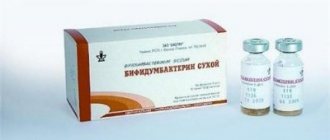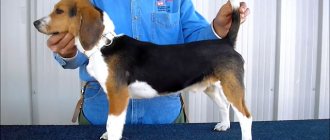If a person has been thinking about a dog for a long time, is not afraid of the need to spend a couple of hours a day outside, and is increasingly looking at the neighbors’ four-legged pets, then it’s time to get a puppy.
And before you start studying sites for selling dogs, you need to understand this issue in detail. After all, the relationship between owner and dog directly depends on which breed is preferred. But the age of the baby is inversely proportional to the amount of hassle associated with care and upbringing.
What is a dog for?
Why do you need me?
In order to choose the right puppy and subsequently not regret your decision, first of all, you need to sincerely answer the question: “Why do I need a dog?” Depending on the breed, dogs can serve as guards, watchmen, hunters, companions, or simply loyal friends. Perhaps all your life you have dreamed of walks in the fresh air with a Siberian husky, or you prefer an evening on the couch with a miniature toy terrier by your side, or maybe you want to spend time like a king in the company of a Welsh Corgi? Some owners are crazy about long-haired breeds, with which they can experiment with hairstyles and buy them fun accessories, while other owners prefer short-haired animals that they don’t have to vacuum every day.
Before getting a dog, carefully weigh the pros and cons. Make sure that your family members support this idea and that the psychological climate in the house is quite calm. Read articles about the care and maintenance of dogs and evaluate your strengths.
If the decision to adopt a puppy has been made, and it is unshakable, you need to decide why you need a dog, and, accordingly, what breed, gender and category of pets to consider.
Dogs of any breed are divided into 3 classes.
- Pet. Translated from English, pet means “domestic animal.” As the name suggests, this category includes simple dogs “for the home.” They cannot be shown and are not suitable for breeding due to any deviation from the breed standard. Such animals are castrated or sterilized so that the defect is not passed on to the offspring. But non-standard does not mean bad, a puppy of the pet category can grow up to be a beautiful, smart dog and become your devoted friend. Pet class puppies are cheaper than others.
- Breed. Breed is translated as “breed”. Breed-class dogs have a good pedigree, they meet the breed standard, but with minor features. They participate in exhibitions where they do not claim to win. Their main task is to produce offspring in which the genes of outstanding ancestors can manifest themselves. Breed category puppies are significantly more expensive than pet ones.
- Show. The word show does not need translation. Show class puppies are the best of the best. Experts know these pets by name, and at exhibitions they have no equal. Often you have to reserve a champion puppy even before its birth. Show class is the most expensive category of dogs.
Results
So, let’s summarize how to choose the right puppy:
- Breed selection. There are more than 400 dog breeds and their number is constantly growing. Each differs in appearance, character, and conditions of detention.
- Reading about your chosen breed. Once you have decided on the breed, read all possible literature to learn as much as possible, and also talk to the owners of dogs of this breed.
- Choosing a puppy for the family. In this case, you need to choose from breeds that are friendly to children. These include, for example, Labrador puppies, Cocker Spaniel, Jack Russell Terrier, French Bulldog, Jagdterrier and others.
- Choosing a puppy for protection. You have to choose from breeds that are devoted to their owner and react with caution to strangers. These are mainly large and medium-sized breeds, for example, German Shepherd, Rottweiler, Doberman and others puppies.
- Choosing a puppy for hunting. If you are hunting, you should choose a puppy from breeds such as Drahthaar, Beagle Harrier and others. Many people choose a husky puppy from a litter for hunting.
- Choosing a puppy for shows and competitions. The main thing in this case is to choose a puppy with all the necessary documents and a good pedigree. Currently popular puppies are Yorkshire Terrier, Chow Chow, Pekingese, Pomeranian, and Chihuahua.
- Choosing a puppy without a breed. If you have no desire to purchase a puppy of a certain breed, it is better to take a dog without a breed. Mutts make the best friends if they are raised well.
Boy or girl
After choosing a dog breed, future owners think about what gender of puppy is best to get. In this matter, we recommend focusing on personal sympathies, however, males and females have differences in appearance and behavior that are worth keeping in mind.
Pros and cons of male dogs:
- males are more suitable for participation in sports competitions;
- more powerful and larger than females;
- lazier in matters of training;
- Males have a stronger sex drive. His needs will have to be compensated with long-term physical activity;
- During a walk, the male is active and strives for his fellow tribesmen. If there is a bitch in heat nearby, you will have to hold him tightly on a leash.
Pros and cons of females:
- more domestic and affectionate, more attached to the owner;
- less aggressive and pugnacious;
- sleeker and smaller in size;
- more obedient and easier to train;
- Bitches come into heat 2 times a year. They become nervous, disobedient, and the risk of infections increases. During these periods, the dog needs to be protected from male dogs and monitored especially carefully, because it may try to escape.
In general, it can be noted that the distinguishing feature of males is independence, and that of females is tractability. But a lot depends on the temperament of a particular dog.
How to find a good nursery
So, if you have already decided which breed and gender of puppy is right for you, it’s time to look for a reliable breeder. There is no need to rush when it comes to buying a dog. The animal will live with you for about 15 years, so it is so important to choose the right puppy. Refrain from spontaneous purchases at the poultry market or through free message boards on the Internet. At a minimum, the puppy may not meet the breed standard when it grows up, and at the maximum, there is a risk of buying a sick animal that will have to be treated for a long, expensive and unsuccessful time.
The best place to buy a puppy is a specialized nursery. You can choose a pet together with an experienced dog breeder or on your own, following your heart. As a rule, nurseries have their own websites, and you can find customer reviews about them.
Lifehack: go to a dog show of the breed you dream of. There, see which dogs you like best, meet their owners and find out where they got their puppies. Usually dog lovers are happy to share this information and also give valuable advice. Representatives of leading nurseries also actively participate in exhibition events and will not forget to provide you with business cards.
The number of kennels depends on the popularity of the breed and the region. Having chosen a trustworthy option, call them and make an appointment. During the conversation, ask the breeder about the conditions in which the puppy is kept and its parents. If you have the feeling that they are trying with all their might to urgently sell the puppy, this should alert you. A good breeder will ask you a lot of questions about your family, living conditions, free time and even hobbies to make sure that the puppy will be in good hands and will suit your personality.
It's decided! I'll take it!
It is better to draw up a purchase agreement. It stipulates the conditions for the return of the puppy, most often this is an infectious viral disease in the next two weeks, no prolapse of the testicles, problems with bite, hereditary diseases, etc. Samples of such an agreement can be found on the Internet. If the customer refuses without explanation, it is better not to work with him.
In addition, you may be offered detailed instructions on how to care and feed your puppy, a list of what you may need at home, and extensive recommendations for training and maintenance. Some breeders give the puppy his favorite toy, food for the first days and a diaper for the trip.
Be sure to exchange numbers and keep in close contact in the near future. A person who decides to get a dog must remember that his life will change. But in addition to joy and small victories, it will add responsibilities and troubles. Make each other happy and be healthy!
How to choose a healthy puppy
It's time to go to the nursery for your future pet. Please note that puppies must be in a clean room that does not have a strong unpleasant odor. Often the breeder begins to show all his diplomas and lists the show titles of the puppy's parents. Listen to this information, but don't let your guard down. In addition to potential championship credentials, it is very important what character the dog will have.
If you have the opportunity to meet the puppy's parents, don't miss it. This way you can evaluate their behavior personally. If you can't arrange a meeting, ask the breeder if they were aggressive, pugnacious or cowardly. These qualities are inherited, as is the desire to howl, tear up furniture and bark for no reason. Look at photographs of the puppy's grandparents, if available.
You should avoid purchasing a sick puppy immediately. However, many diseases are not obvious or may only appear in the future. Try to “talk” to the breeder; he may accidentally mention points that may indirectly indicate the puppy’s illnesses:
- a test for hip dysplasia in giant breed breeders is mandatory; its absence is suspicious;
- if the puppy does not eat well, he may have gastrointestinal or liver diseases;
- dogs with allergies often give birth to puppies with the same problem;
- If an animal is terrified of fireworks, thunderstorms and other loud sounds, then its nervous system is unstable. Hysterical parents are unlikely to give birth to a brave and balanced puppy;
- dogs running away during walks are unwanted producers of offspring;
- In pursuit of profit, unscrupulous breeders may breed dogs with epilepsy, which cannot be noticed until there is a seizure.
A healthy puppy will be active and friendly. If you kneel down and call him, he will come to you. The baby will show curiosity about new people and toys. He should look happy, frolic with his brothers and sisters. In the breeder's arms, the puppy is calm, allows itself to be petted, and normally perceives touches on its paws and face. Avoid buying cowardly and intimidated pets, as well as aggressive and dominant individuals. With age, a dog's character will not change significantly.
10 main external signs of a healthy puppy:
- clear, lively look;
- there is no pus or other discharge in the eyes;
- moist and shiny nose;
- correct bite, the number of teeth corresponds to the standard;
- the ears are pink and clean;
- there are no sores, pimples and, especially, parasites on the skin;
- shiny, silky coat;
- tail without strong creases or docked;
- lymph nodes are not enlarged;
- not a bloated tummy.
A big plus in favor of the breeder will be his agreement to enter into a written contract for the purchase and sale of the puppy. If significant defects specified in the contract are identified, the animal can be returned. In addition, the very presence of “insurance” will discourage the seller from selling a problem pet.
Who should I choose? You are all so cute!
At what age should you pick up a puppy?
Russian dog breeders recommend adopting a puppy at 8-10 weeks of age. By this time, the baby has already had a basic education, is toilet trained, and has been vaccinated.
Important: do not pick up the puppy immediately after weaning from its mother. Up to 9 weeks, the baby masters dog language and socializes in the process of communicating with other puppies. Let him spend a couple of weeks in a doggy daycare.
A decent breeder will never give away a puppy that is less than 6 weeks old. If the buyer has extensive experience in keeping dogs, he can count on a 6-7 week old baby. This option is not suitable for beginners.
The breed determines at what age it is best to pick up a puppy. Thus, large and giant dogs develop more slowly than medium and small ones. Large dogs are bought only at 3 months. It is important to feed such pets properly and monitor their weight in order to avoid sudden changes that promise problems with the musculoskeletal system.
If you want to buy a breed or show class puppy, pick it up even later. Compliance with the breed standard and championship potential can be fully assessed no earlier than 6-9 months of age. Despite the desire to pick up your baby as soon as possible, be patient!
Please note: even when selling the most expensive puppy, a conscientious breeder will never guarantee that the dog will become a champion. He can only assess the puppy’s potential and make a forecast. It happens that the appearance of an animal changes significantly over the course of a year. Also, a lot depends on the actions of competitors and how the owner will care for the dog and prepare it for the exhibition.
What questions to ask the breeder
First of all, find a mark on the baby’s ear or groin area and ask the breeder to present a puppy card (metric). The brand code and the code in the metric must be the same.
Sample puppy metrics
The metric is the puppy’s primary document, which is issued when the baby turns 45 days old. A dog handler comes to the nursery, examines all the babies from the litter and records any defects. Subsequently, the owner of a dog aged 6-15 months can exchange the metric for a pedigree, which will give the pet the right to participate in breeding.
Please note: metrics are not paid separately; their price is included in the price of the puppy. If they do not give you a puppy card, then this may be a signal that the mating was unplanned. It makes no sense to buy purebred dogs of show and breeding class without metrics, since they will not be able to make a show career or become producers of offspring.
It is advisable that the puppy has a veterinary passport with deworming and vaccination records. If you don’t have a veterinary passport, you can make one yourself.
After checking the documents, you can move on to questions. Don't be afraid to look stupid, ask everything that worries you. Take the breeder's contact information - you will probably have additional questions after a while.
Don't forget to ask:
- How many puppies were there in the litter (the optimal number is from 3 to 7)?
- Was the litter planned?
- What vaccinations should I get and when?
- What kind of food does the puppy eat? When and how to transfer to a new one?
- When will it be possible to go for walks and in what mode?
- How to care for your pet?
- What commands does the puppy know?
- Will the breeder recommend a veterinarian and provide further support?
If the answers you receive satisfy you, and the puppy no longer wants to leave, congratulations, you have found your little miracle!
Pet's well-being
The baby's eyes should be shiny and free of dirt; the coat is shiny and uncontaminated, and the belly is not swollen. Under no circumstances should the baby have obvious injuries or external defects. When purchasing a dog at the market or taking it from the street, you must take it to a doctor and get all the necessary vaccinations. If the pet is taken from acquaintances, comrades or a person who breeds breeds, then it is advisable to take an object from which the smell of the puppy’s mother emanates. This will make it easier for him to adapt to the new environment.
Puppies from a shelter or from the street
Puppies do not always end up in homes straight from the caring hands of breeders. Sometimes people are ready to save a dog by taking it from the street or from a shelter. In this case, first of all, take your pet to the veterinarian to immediately find out about possible diseases.
Puppies from the shelter
When choosing a dog of a “noble” breed, it is important to understand that such animals have a more independent character than their purebred relatives. Dogs living on the street adapt to wandering; their instincts are highly developed. The puppy can be cowardly or, conversely, show aggression. Negative additions may include poor learning ability and frequent escapes.
On the other hand, among mongrels there are also very sensitive, intelligent and affectionate dogs. They seem to thank their owner daily for their kindness. Do not forget that mongrel dogs are the descendants of those pets that were once abandoned on the street by their owners.
The right choice of puppy will be different for each person. Assess your material and mental capabilities, and then don’t be afraid to take a step towards responsibility - the dog will become your true friend and give you many happy moments!
Character, temperament and activity
Don’t forget about your own character, as well as your usual way of life. The moment of changing your daily routine can be mitigated if you choose a pet with a similar temperament and activity level.
Lovers of peace and tranquility are advised to pay attention to the phlegmatic English bulldog or chow-chow, and those who love sports and frequent walks are advised to pay attention to energetic terriers or huskies.
For workaholics, basset hounds or sharpeis are more suitable, as they can easily tolerate loneliness, but it is better to immediately refuse to buy a lapdog, since a small amount of attention has an extremely negative impact on its health.











